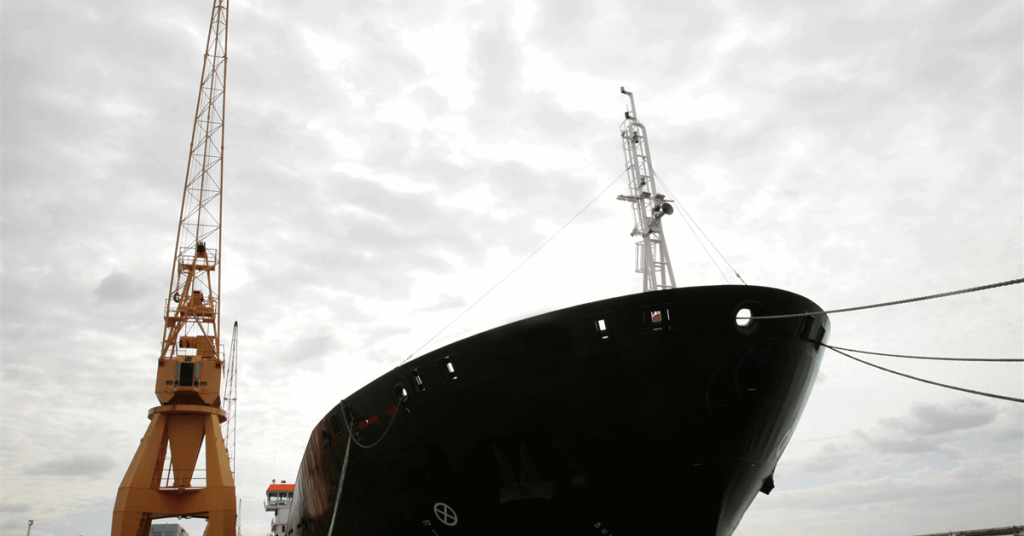Qatar Gas Transport Co. Ltd. (Nakilat) said Sunday it had launched the first financing package with the Export-Import Bank of Korea (KEXIM) for 25 conventional liquefied natural gas (LNG) carriers commissioned from South Korean shipyards.
“KEXIM’s participation, as a Korean government-backed financial institution, represents a strong endorsement of Nakilat’s project”, Nakilat said in a statement online. “It provides a layer of financial assurance, contributing to secure necessary funding for Nakilat’s shipbuilding requirements despite global market volatility and geopolitical risks”.
KEXIM’s support “serves as a catalyst, encouraging broader participation from other financial institutions in future debt tranches”, Nakilat added.
“Through this partnership, Nakilat has secured vital financial resources for the fleet expansion, which reflects the strong belief in our financial stability and strategic operational capabilities”, Nakilat chief executive Abdullah Al-Sulaiti said. “This collaboration highlights Nakilat’s strong commitment to leveraging international partnerships to advance its global market position and support Qatar’s position as a global leader in the LNG industry”.
Last May a Hyundai Heavy Industries shipyard in Ulsan held a steel-cutting ceremony for 17 of the 25 ships, marking the start of construction.
Designed with a capacity of 174,000 cubic meters (6.14 million cubic feet) each, the vessels will be deployed for QatarEnergy as part of the state-owned LNG major’s fleet expansion and modernization program.
In March 2024 Nakilat and QatarEnergy announced “long-term” charter agreements for 25 conventional-size, 174,000-cubic-meter LNG vessels. They will be owned and operated by Nakilat.
In May 2024, Nakilat said it had inked another long-term charter agreement with QatarEnergy for nine QC Max-size LNG vessels that will also be owned and operated by Nakilat. The nine are among 18 QC Max-size LNG ships that QatarEnergy earlier awarded for construction to China State Shipbuilding Corp. (CSSC).
QatarEnergy has said its fleet expansion aims to support production growth in Qatar’s offshore North Field, as well as to serve an LNG facility it is building with Exxon Mobil Corp. in the United States.
QatarEnergy says the Golden Pass and the North Field expansion projects will more than double its LNG production capacity.
QatarEnergy and ExxonMobil expect the Golden Pass LNG project in Sabine Pass, Texas, to start operation this year.
Meanwhile the first liquefaction train from the North Field East expansion project will start production by mid-2026. “Subsequently, other trains will come online after that. As for North Field West, it is in the engineering phase and will be going into the construction phase somewhere in 2027”, QatarEnergy chief executive Saad Sherida Al-Kaabi, who is also Qatar’s energy affairs minister, told the World Gas Conference in Beijing earlier this year, as quoted in a statement from QatarEnergy.
“QatarEnergy will be the largest single LNG exporter as a company while Qatar, as a country, will be the second-largest exporter of LNG after the United States for a very long time”, Al-Kaabi said.
To contact the author, email jov.onsat@rigzone.com
What do you think? We’d love to hear from you, join the conversation on the
Rigzone Energy Network.
The Rigzone Energy Network is a new social experience created for you and all energy professionals to Speak Up about our industry, share knowledge, connect with peers and industry insiders and engage in a professional community that will empower your career in energy.
element
var scriptTag = document.createElement(‘script’);
scriptTag.src = url;
scriptTag.async = true;
scriptTag.onload = implementationCode;
scriptTag.onreadystatechange = implementationCode;
location.appendChild(scriptTag);
};
var div = document.getElementById(‘rigzonelogo’);
div.innerHTML += ” +
‘‘ +
”;
var initJobSearch = function () {
//console.log(“call back”);
}
var addMetaPixel = function () {
if (-1 > -1 || -1 > -1) {
/*Meta Pixel Code*/
!function(f,b,e,v,n,t,s)
{if(f.fbq)return;n=f.fbq=function(){n.callMethod?
n.callMethod.apply(n,arguments):n.queue.push(arguments)};
if(!f._fbq)f._fbq=n;n.push=n;n.loaded=!0;n.version=’2.0′;
n.queue=[];t=b.createElement(e);t.async=!0;
t.src=v;s=b.getElementsByTagName(e)[0];
s.parentNode.insertBefore(t,s)}(window, document,’script’,
‘https://connect.facebook.net/en_US/fbevents.js’);
fbq(‘init’, ‘1517407191885185’);
fbq(‘track’, ‘PageView’);
/*End Meta Pixel Code*/
} else if (0 > -1 && 91 > -1)
{
/*Meta Pixel Code*/
!function(f,b,e,v,n,t,s)
{if(f.fbq)return;n=f.fbq=function(){n.callMethod?
n.callMethod.apply(n,arguments):n.queue.push(arguments)};
if(!f._fbq)f._fbq=n;n.push=n;n.loaded=!0;n.version=’2.0′;
n.queue=[];t=b.createElement(e);t.async=!0;
t.src=v;s=b.getElementsByTagName(e)[0];
s.parentNode.insertBefore(t,s)}(window, document,’script’,
‘https://connect.facebook.net/en_US/fbevents.js’);
fbq(‘init’, ‘1517407191885185’);
fbq(‘track’, ‘PageView’);
/*End Meta Pixel Code*/
}
}
// function gtmFunctionForLayout()
// {
//loadJS(“https://www.googletagmanager.com/gtag/js?id=G-K6ZDLWV6VX”, initJobSearch, document.body);
//}
// window.onload = (e => {
// setTimeout(
// function () {
// document.addEventListener(“DOMContentLoaded”, function () {
// // Select all anchor elements with class ‘ui-tabs-anchor’
// const anchors = document.querySelectorAll(‘a .ui-tabs-anchor’);
// // Loop through each anchor and remove the role attribute if it is set to “presentation”
// anchors.forEach(anchor => {
// if (anchor.getAttribute(‘role’) === ‘presentation’) {
// anchor.removeAttribute(‘role’);
// }
// });
// });
// }
// , 200);
//});

